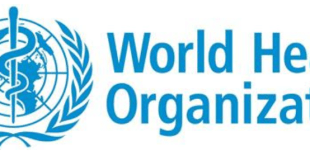· Adani Cement unveils ‘Geoclean’ erstwhile known as ‘Geocycle’, with renewed focus on offering sustainable and innovative waste management and replacement of traditional fuels with alternate fuels & raw materials (AFR).
· Geoclean targets to increase the Thermal Substitution Rate to 30% by 2027 for ACC and Ambuja Cements from 6% in the previous year.
· Geoclean aspires to create a green economy that fosters business growth and sustainable development.
Mumbai, 13th December 2022: Adani Cement in its commitment to building nations with goodness and with a richer understanding of nation-building with a focus on sustainability unveils ‘Geoclean’ which was erstwhile known as ‘Geocycle’. ‘Geoclean’ through co-processing of waste contributes to a cleaner environment and conservation of natural resources through replacement of traditional fuels with alternate fuels & raw materials (AFR).
Geoclean is built on the foundation of sustainability and value enhancement of business through circular economy. It offers sustainable and innovative waste management solutions to the agricultural, industrial, and public/municipal sectors. Through co-processing the waste from these sectors, it ensures the recovery of energy and recycling of materials from waste, leaving zero residues.
Geoclean targets to increase the Thermal Substitution Rate to 30% by 2027 for ACC and Ambuja Cements from previous year’s 6% through co-processed ~3.7 million tonnes of alternative fuels. Geoclean is a pioneer in the industry in effectively utilising waste in kiln co-processing and has developed 14 co-processing facilities across India around AFR storage areas, feeding arrangement, and laboratories that support Adani Cement.
Mr. Ajay Kapur, CEO, Cement Business said, “We are committed to building a sustainable future by adopting clean and green technologies in our overall business. We have always believed in environmental conservation and are committed to making the optimum contribution towards co-processing waste responsibly for a sustainable future. Adani Cement will continue its endeavours to promote sustainability and build a cleaner and greener planet.”
Geoclean through its innovative bubble barrier technology at Mantola canal in Agra targets to remove 2,400 tonnes of plastic waste every year. A similar technology is deployed at the BBMB Lake in the Sundernagar area of Mandi, Himachal Pradesh, to remove plastic waste from the water body. The plastic collected from these water bodies are sent to recycling centers for further processing. In line with Adani Cement’s vision and mission, Geoclean offers innovative, efficient and sustainable solutions for the challenges of today and tomorrow.
Geoclean has a progressive approach driven by footprint expansion of municipal solid waste across key markets leveraging Swachh Bharat Abhiyan and the Smart City campaign. It will focus on its association with 65+ cities for managing legacy waste through urban mining; 2.5 Lakh+ tonnes of plastic used as alternative fuel across plants; advocacy efforts on recognition of co-processing at par with recycling, and stakeholder interaction for inclusion of landfill tax and guidelines on the usage of chlorine dust in the cement manufacturing process.
Adani Cement continues to work hard towards its goal, as it remains committed to becoming ‘Net Zero’ and helping India become cleaner and greener. The organization strives to undertake more such innovative initiatives such as Geoclean in the future to make the planet a sustainable habitat for future generations.
Aligned to the Adani Group’s core philosophy “Nation Building” and “Growth with Goodness”, Geoclean will contribute towards a cleaner India with a renewed vigour. The work done under the aegis of Geoclean will further bolster Adani Cement’s exemplary efforts towards sustainable value creation.
 Newspatrolling.com News cum Content Syndication Portal Online
Newspatrolling.com News cum Content Syndication Portal Online





